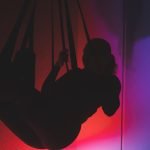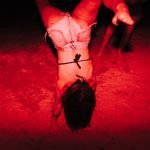Creating a Culture of True Accessibility
We recognize that a truly inclusive swinging community must be consciously accessible to people with physical disabilities, chronic illnesses, and neurodivergent conditions. Accessibility is more than simply having a ramp or wide doorways — it requires thoughtful planning, education, and a commitment to meet diverse needs with dignity and respect.
Table Of Content
- Creating a Culture of True Accessibility
- Sensory-Inclusive Spaces for Neurodivergent Members
- Educating Staff for Sensitivity and Respect
- Inclusive Consent Practices
- Programming That Welcomes All Bodies and Minds
- Representation in Promotions and Policies
- Transportation and Entry Access
- Sexual Health and Disability
- Fostering Peer Support and Advocacy
- Celebrating Diversity as Strength
- A Commitment to Continuous Improvement
- An Invitation to Build Better Together
Venues that wish to attract and support members with disabilities must invest in universal design: wide, obstacle-free pathways; elevators or lifts for multi-story buildings; accessible bathrooms with grab bars and ample space; and seating options for people who may need to rest more frequently. Lighting, noise levels, and sensory considerations should also be addressed to ensure that neurodivergent guests are not overwhelmed.
Sensory-Inclusive Spaces for Neurodivergent Members
Many neurodivergent adults, including those with autism, ADHD, or sensory processing differences, thrive in lifestyle communities that respect their unique needs. Clubs can make spaces more neurodivergent-friendly by providing quiet chill-out areas with soft lighting and low noise, offering noise-cancelling headphones, and training staff to understand sensory overload and how to assist guests who need a moment away from crowds.
Clear signage, predictable event schedules, and well-communicated house rules reduce anxiety for people who appreciate structure and routine. We advocate for clubs to provide event agendas in advance, so neurodivergent individuals can plan and feel secure about what to expect.
Educating Staff for Sensitivity and Respect
Staff training is crucial for creating a culture where disabled and neurodivergent guests feel genuinely welcome. Hosts, bartenders, security, and volunteers should know how to offer respectful assistance without condescension. They should understand mobility devices, service animals, and communication needs.
A well-trained team does not make assumptions. They always ask before helping, respect personal space, and communicate clearly. Staff should also be aware of how to de-escalate misunderstandings that may arise if a neurodivergent person communicates differently.
Inclusive Consent Practices
Consent is the foundation of ethical swinging, but inclusive consent must take into account different communication styles. Some neurodivergent individuals may find verbal negotiation stressful or may use alternative communication tools.
We promote clubs providing consent cards or badges that guests can use to signal interest, boundaries, or preferences without needing to speak in noisy or overwhelming spaces. Written agreements and visual aids can empower all members to communicate clearly.
Programming That Welcomes All Bodies and Minds
Events should be planned with flexibility. This means offering different forms of interaction, from high-energy dance floors to low-key lounges for intimate conversation. Hosting educational workshops on disability and neurodiversity awareness benefits the entire community and helps dismantle stereotypes.
Activity pacing is another key factor: giving people ample downtime between sessions or themed rooms ensures that those with fatigue or sensory limits do not feel pressured to keep up with the crowd.

Representation in Promotions and Policies
We call on all lifestyle clubs to ensure that their promotional materials and community leadership reflect visible diversity. Featuring people with mobility aids, diverse body types, and neurodivergent advocates signals that everyone truly belongs.
Policies should explicitly state that ableism, mocking neurodivergence, or ignoring accessibility needs will not be tolerated. A strong inclusivity statement builds trust and invites open dialogue about how clubs can continue to improve.
Transportation and Entry Access
Practical considerations matter. Parking must include ample disabled parking bays near entrances. Entryways should have automatic doors or attendants ready to assist. For clubs in older buildings, investing in temporary ramps or lifts is not optional — it is an ethical necessity to remove barriers.
Providing clear information on the website about the venue’s accessibility features saves potential guests the stress of having to ask or guess whether they can comfortably attend.
Sexual Health and Disability
Sexuality and disability are too often treated as incompatible — a harmful myth we actively reject. Many disabled and neurodivergent adults have thriving sex lives and deserve spaces that support them in exploring desire safely.
Workshops that address adapted sexual positions, mobility-friendly furniture, and communication strategies for chronic pain empower all members to enjoy fulfilling experiences. Clubs can offer specialized equipment like sex swings or adjustable beds that increase comfort for people with limited mobility.
Fostering Peer Support and Advocacy
Clubs that wish to stand out as leaders in accessibility should encourage peer-led support groups, mentorship circles, or advocacy boards. Listening to disabled and neurodivergent members and acting on their feedback is the strongest way to build trust and ensure that the community evolves in meaningful ways.
Celebrating Diversity as Strength
When we embrace people with disabilities and neurodivergence, we enrich the entire swinging community. Diversity of mind and body brings creativity, fresh perspectives, and deep empathy. Accessible, neurodivergent-friendly clubs set a powerful example for how pleasure, connection, and respect can flourish when no one is left out.
A Commitment to Continuous Improvement
We urge all lifestyle spaces to view accessibility as an ongoing practice — not a one-time checklist. Regularly reviewing physical layouts, policies, and programming keeps inclusion at the forefront. Community surveys, focus groups, and open forums give disabled and neurodivergent guests an active voice in shaping the future.
An Invitation to Build Better Together
We believe that when the swinging community commits to true inclusivity, everyone benefits. A club that welcomes people of all abilities, communication styles, and neurotypes demonstrates the best of what this lifestyle can offer: a place where freedom, respect, and pleasure intersect.
Together, we shape a culture where no one feels they must mask, hide, or stay home because of a disability or neurodivergence. In doing so, we create an environment where every member can connect, explore, and thrive — fully and authentically.
Inclusion is not an option. It is our standard. And our door is open to all.




